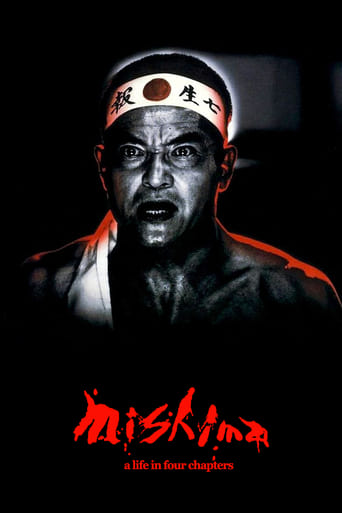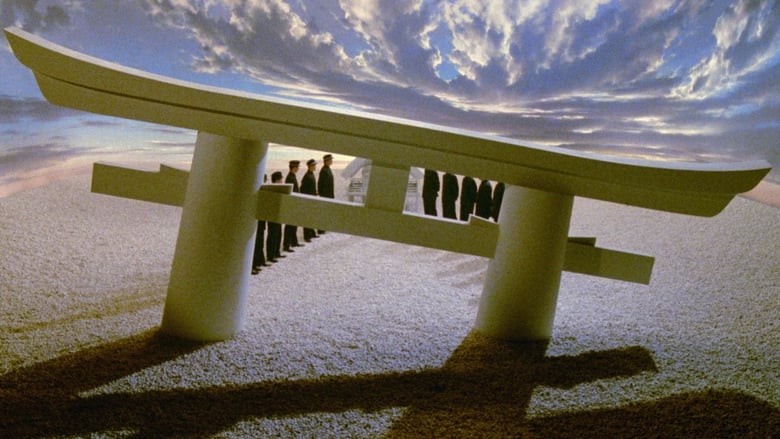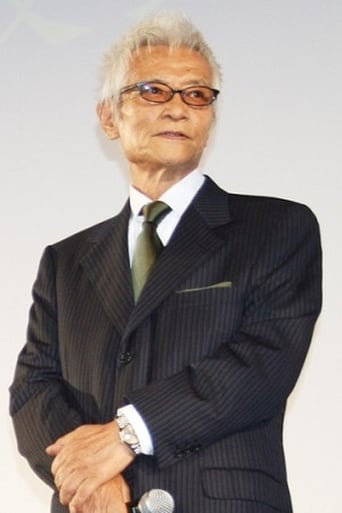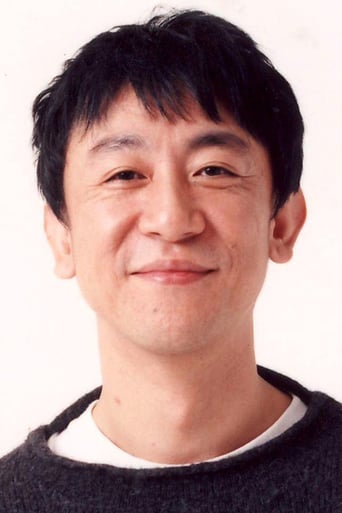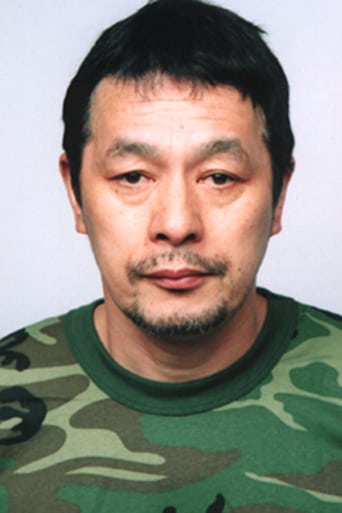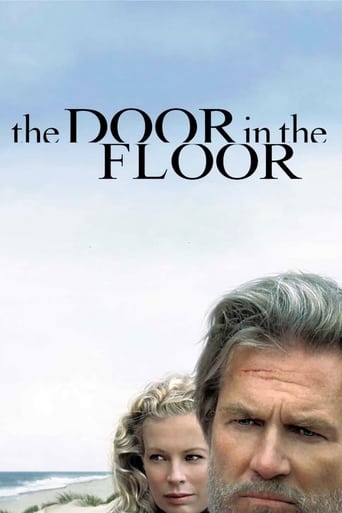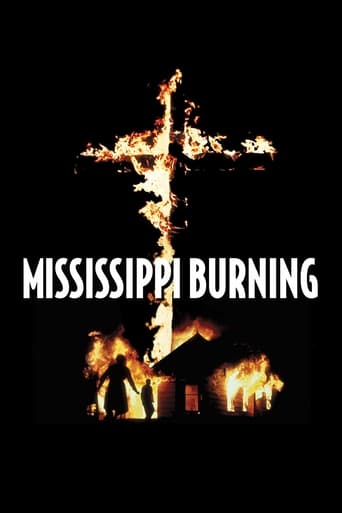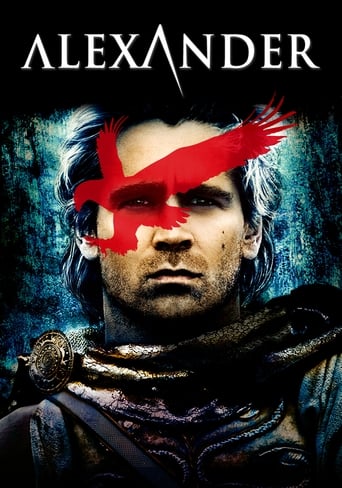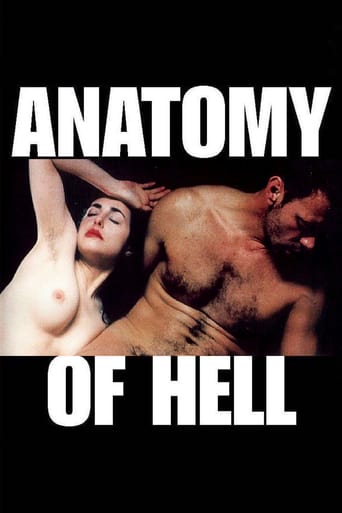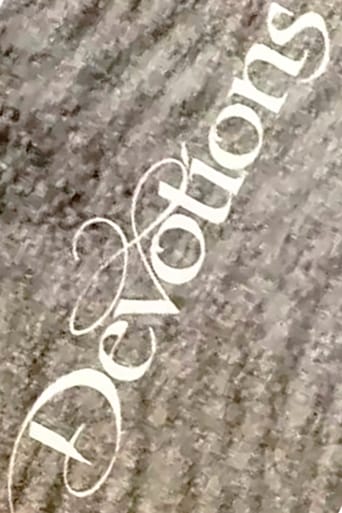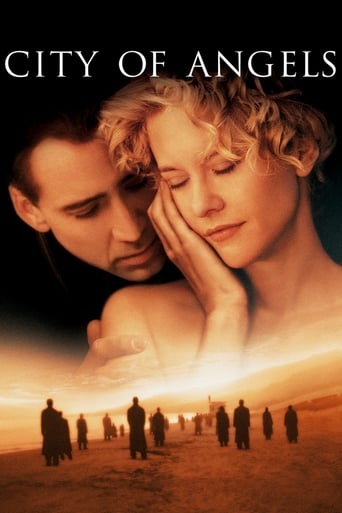Mishima: A Life in Four Chapters (1985)
A fictional account of the life of Japanese author Yukio Mishima, combining dramatizations of three of his novels and a depiction of the events of November 25th, 1970.
Watch Trailer
Free Trial Channels
Cast


Similar titles
Reviews
Plot so thin, it passes unnoticed.
Easily the biggest piece of Right wing non sense propaganda I ever saw.
Close shines in drama with strong language, adult themes.
One of the film's great tricks is that, for a time, you think it will go down a rabbit hole of unrealistic glorification.
This film, executive produced by Francis Ford Coppola and George Lucas, and written and directed by Paul Schrader (Taxi Driver, American Gigolo), is one I never would have heard of, if not listed in the book 1001 Movies You Must See Before You Die, I hoped it would be good. Basically it is a fictionalised biopic, in four chapters of, about the life and work of celebrated Japanese writer Yukio Mishima (Ken Ogata). Set on 25th November 1970, the last day of his life, he is seen finishing a manuscript, then he puts on a uniform to meet with his most loyal followers from his private army. In flashbacks, we see Mishima's progression, from sickly young boy to one of Japan's most acclaimed writers of the post-war era. He is loathsome of materialism of modern Japan, and sets up his own private army, proclaiming to reinstate the emperor as the head of state. The biographical sections are interwoven with short dramatizations of three of his novels: The Temple of the Golden Pavilion, Kyoko's House, and Runaway Horses. The film culminates in Mishima and his followers taking hostage a General of the Japan Self-Defense Forces, he makes an address to the garrison's soldiers, asking them to join his struggle to reinstate the Emperor as the nation's sovereign, his speech is largely ignored and ridiculed. It ends with Mishima returning to the General's office and committing seppuku, a Japanese ritual suicide by disembowelment. Also starring Naoko Ôtani as Mother, Haruko Katô as Grandmother, Yuki Nagahara as Mishima, age 5, Masato Aizawa as Mishima, age 9-14, Gô Rijû as Mishima, age 18-19 and Junkichi Orimoto as General Mashita, and narrated by Roy Scheider. It is an interesting story, there are some memorable moments, both fictional and non-fictional, the use of scenery and colour is terrific, and the score composed by Philip Glass is great, including music I recognised that was used in the ending of The Truman Show, not a bad biographical drama. Worth watching!
Paul Schrader and his brother Leonard wrote Mishima, and in so doing, clearly drew parallels between the life of Yukio Mishima and his work. The film is divided into four sections: beauty, art, action, and the fateful day when Mishima held an army general hostage and spoke to the garrison, only to have it ridicule him and his Bushido ideals of the samurai code. Mishima committed ritual seppuku on November 25, 1970, and he planned it as a meshing of beauty, art, and action. Schrader edits scenes recreating that day with three different scenarios from Mishima's novels: Temple of the Golden Pavilion, Kyoko's House, and Runaway Horses. The moment of seppuku is perfectly realized in relation to its shocking climax via pulling back the camera while simultaneously zooming in. Black and white sequences are intermingled with the colorful moments depicted in Mishima's novels. The black and white scenes represent memories from Mishima's childhood and youth. Schrader correlates some of these autobiographical moments with scenes from the novels that often parallel Mishima's real life, such as his stammer, development of his bodybuilding obsession, and his fostering of the samurai code. Each of the three themes of beauty, art, and action is exemplified in the chosen depictions from the respective novels. The color sequences are reminiscent of early, stagy Technicolor films, giving the film, perhaps, an intended surreal quality considering the subject matter.Ken Ogata plays the real Mishima with unfailing determination, headed to the general's office on that fateful day and resembles the real Mishima. Schrader took tremendous risks with this film in focusing on the novels he did and with tying them thematically to both Mishima's personal life and his literary ambitions. The editing of the film between the three main sections of November 25, 1970, the black and white growing up segments, and the colorful novel scenes clearly point to the deliberate intersection of these elements of beauty, art, and action in Mishima's life. At times, it is difficult to follow, and there may be little to recommend for the uninitiated viewer. *** of 4 stars.
Spoilers herein.Paul Schrader isn't an accomplished man in terms of creating novel visions. But he is an alert and active thinker of things cinematic. Whatever he does is worth pondering, even when the picture itself is flawed in some ways. (And even when one of his Italian director friends changes his ideas.)In this case, we have what I consider his most complex notion: a film about a man who lived his life as if it were a film, moreover a film that he could and did write. Even that idea could have been handled in a pedestrian manner, by showing the man and his life. But except for the final suicide episode, Schrader doesn't show the `real' life -- instead he stages episodes from the writings, mostly in a Kabukified dream manner.Schrader's commentary on this DVD is one of the best I know. It remarks that though this life was based on fabrication, the movie was mandated to be based on truth. But the original fiction the subject created is preferred by the Japanese authorities (and apparently the public, still) so the thing has never been released in Japan and the Japanese financiers have denied being so.Adds another level of fabrication to an already rich project.Ted's Evaluation -- 3 of 3: Worth watching.
A story told in four chapters and in three levels. Flashbacks of Yukio Mishima's life, dramatizations of his written works, and the events of his final day of life.If Mishima was a fictional character, I doubt if anyone would believe or accept such a creation. But he was a real, flesh and blood, human being, which makes the film all the more incredible. Granted that some of the facts have been dramatized or "enhanced" for the screen, but the story is quite factual.A man of many contrasts: A devoted family man who kept a gay lover. A writer who saw his words being "not enough". A patriotic man at home in the present who yearned for a return to Imperial Japan's past glory. A man who struggled to unite movement with action, and saw everything he strove for fall apart at the most critical moment.The film is lovingly made, magnificently acted, painstakingly edited and the musical soundtrack by Philip Glass will stay with you for days. The film's tight budget doesn't show at all.Now available on DVD, this film is a worthy addition to the collections of true cinemaphiles.My rating: 10/10

